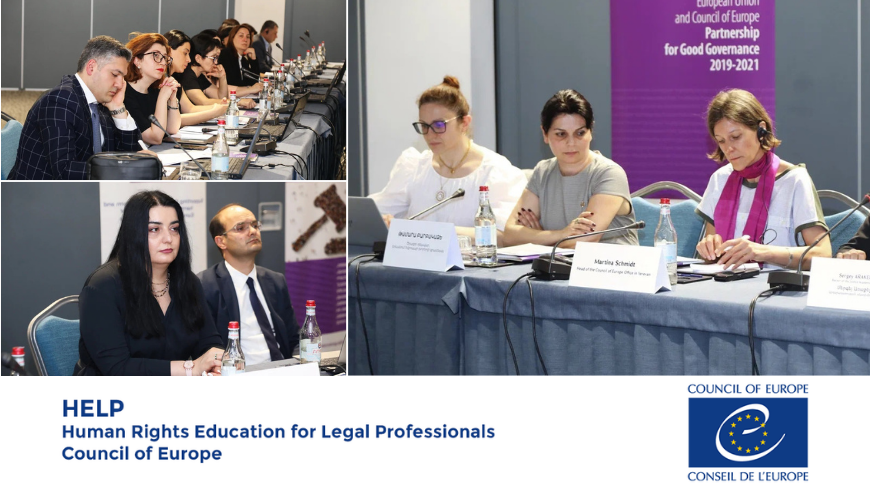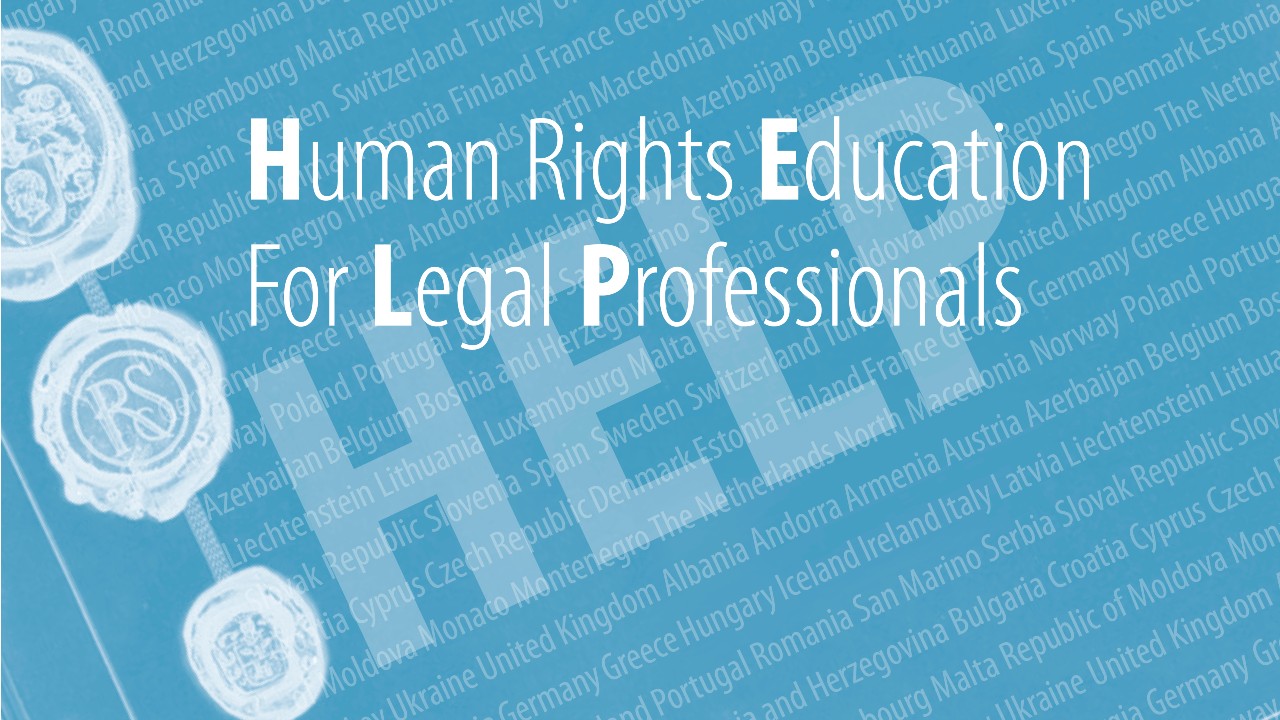The Council of Europe HELP online course on Ethics for Judges, Prosecutors, and Lawyers was launched online for a group of 23 legal professionals from Armenia in co-operation with the Justice Academy of Armenia.
The course includes the main international standards for each profession, as well as the relevant Council of Europe and European Union frameworks. Judges, prosecutors, and lawyers occupy a critical and sensitive place in society; the way they conduct themselves directly impacts on public confidence and on the administration of justice. Therefore, they have a duty to maintain the highest of ethical behaviour. The course is thought to help professionals understand the purpose and importance of ethics in the administration of justice for the benefit of the people, allowing to identify key concepts and understand common values, ethical principles and virtues.
During the launching event, the participants were welcomed by Martina Schmidt, Head of the Council of Europe Office in Yerevan, by Silja Kasmann, Deputy Head of Cooperation, Delegation of the European Union to Armenia, and by Sergey Arakelyan, Rector of the Justice Academy of Armenia. Ana Medarska-Lazova, Deputy Head of Judicial and Human Rights Training Division, Council of Europe, introduced the HELP Programme. Davit Melkonyan, the national HELP tutor and one of the authors of this HELP model course, presented the course and practical aspects of its implementation.
The course has been developed in 2020-2021 by the Council of Europe HELP Programme under the EU-CoE “HELP in the EU II” Project, in cooperation with several Council of Europe entities/services. It has been translated into Armenian, adapted to the Armenian legal context and is piloted within the framework of the Project on "Implementation of Judicial Reforms", co-funded under the European Union and the Council of Europe Partnership for Good Governance and implemented by the Council of Europe.
It includes the following modules:
1. Introduction
- Why does professional ethics matter?
- Common values and principles
- Key concepts
- Distinction between ethical principles and disciplinary rules
2. International and European Framework
- Treaty norms
- United Nations
- Council of Europe
- European Union
- Professional bodies
- Instruments of international courts
3. Ethics for Judges
- Main principles
- Qualities and virtues
- Tools
- Practical examples
4. Ethics for Prosecutors
- Main principles
- Relation with the media
- Tools
5. Ethics for Lawyers
- General principles
- Relation with other parties
- Values
- Tools
- Practical examples
The course is also available for autonomous, self-learning at the Council of Europe HELP Platform in English, French, Greek, Hungarian, Italian, Lithuania, Poland, Romanian, Slovenian, Spanish and Slovak. Successful participants can generate a HELP ‘statement of accomplishment’ after completing the self-learning course.





